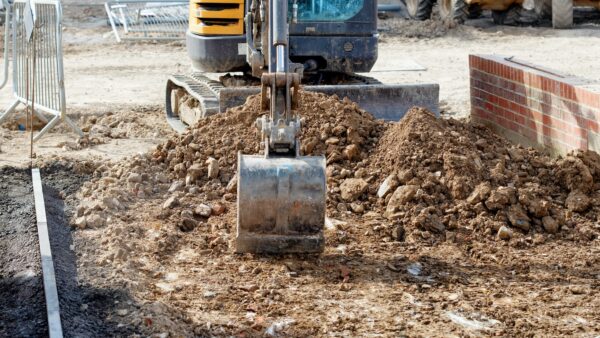
Actor Ricky Tomlinson has camapigned on behalf of the Shrewsbury 24 (Photograph: Alamy)
Many Construction Manager readers will know that Liverpudlian actor Ricky Tomlinson is also a member of the “Shrewsbury 24”. They were a group of pickets in the 1972 national construction strike who were subsequently arrested in February 1973, then convicted of public order offences including the antiquated charge of “conspiracy to intimidate”.
Tomlinson, formerly a plasterer, served 16 months. He later turned to acting, but others in the group apparently found themselves unable to work in construction again. Five of the 24 have since died.
Coming at a time of regular strikes and chronically poor industrial relations, the group and its supporters have always argued that the arrest and convictions were politically motivated and that Edward Heath’s Conservative government of the time carried out a Soviet-style “show trial” to deter trade unions in other sectors.
In April 2012, Tomlinson and the surviving members of the Shrewsbury 24 made a formal application to the Criminal Cases Review Commission to investigate the case.
The CCRC is an independent public body set up in 1997 with a remit to investigate allegations of wrongful conviction. If it concludes there is a reasonable possibility the Court of Appeal might quash the convictions because of fresh evidence, or a new line of argument, then the Court must hear the appeal.
It sends a “Statement of Reasons” to the Court of Appeal, the applicant and the Crown Prosecution Service, and the three parties decide how to proceed. This could lead to a dismissal of the appeal, an overturn resulting in the convictions being quashed, or even a retrial.
“The continuing failure to disclose [the papers] will lead people to conclude that it has less to do with national security and more to do with the potential for political embarrassment.”
Andy Burnham, Labour’s shadow home secretary
A CCRC spokesman told Construction Manager that “[the Tomlinson case] is actively under review and we’re in frequent contact with Mr Tomlinson and his representatives, we’ve met with them a number of times and we are in frequent contact”.
He also stressed that the CCRC had extensive legal powers to sequester documents from any public body in the UK. “We have unprecedented access to material held by any public body, everyone from social services to MI6 and everyone in between. There are no restrictions [on the release of documents] that our powers to obtain material do not trump,” he said.
However, after three and a half years, he said he was unable to forecast how long the CCRC’s investigation might take. “We don’t put a timeline on things, it can be difficult to know how long it takes. And we prioritise the cases of people who are currently in prison or not at liberty.”
But the case reached the news this week with a debate in Westminster Hall, an annexe to the House of Commons where MPs can raise issues with ministers outside the main chamber.
Labour’s shadow home secretary Andy Burnham used Parliamentary privilege to discuss a dossier of evidence gathered by a researcher working on behalf of the Shrewsbury group, in front of an audience that contained Tomlinson himself.
According to the BBC, Burnham said that the new files showed the “highest levels” of political involvement in the decision to bring charges against the builders, the manipulation of witnesses, and attempts to influence the judge and trial jury.
But Burnham also stated that further documents were being withheld by the Home Office. “The continuing failure to disclose [the papers] will lead people to conclude that it has less to do with national security and more to do with the potential for political embarrassment,” he was reported as saying.
The policing minister, Mike Penning, replied that the documents in question did not relate to the safety of the convictions, and said that they would not be released on the grounds of national security.
In view of the CCRC’s powers to obtain information from public bodies – as described above – it seems fairly certain that the material in Burnham’s dossier was already in its hands, and distinctly possible that even the “unpublished” documents have been made available to it.
But until the CCRC eventually publishes its Statement of Reasons on the case, there will continue to be grounds for speculation.











I have heard Ricky Tomlinson speak on this and it is difficult to reconcile the punishment and the crime. I wasn’t aware that the Health administration was oppressive but I would also not be aware of who was politically in charge of national security at that time.
I rarely advocate strike action by any group or individual, but there are some cases where such action is the only way to send a protest message to organisations. Therefore it is possibly time for the entire construction industry to come out and protest at the treatment of this group of people that were forced to give up their for demonstrating for their rights and the rights of the whole of industry. There can be no other reason for withholding documentation other than it being motivated to prevent political embarrassment for a few individuals.